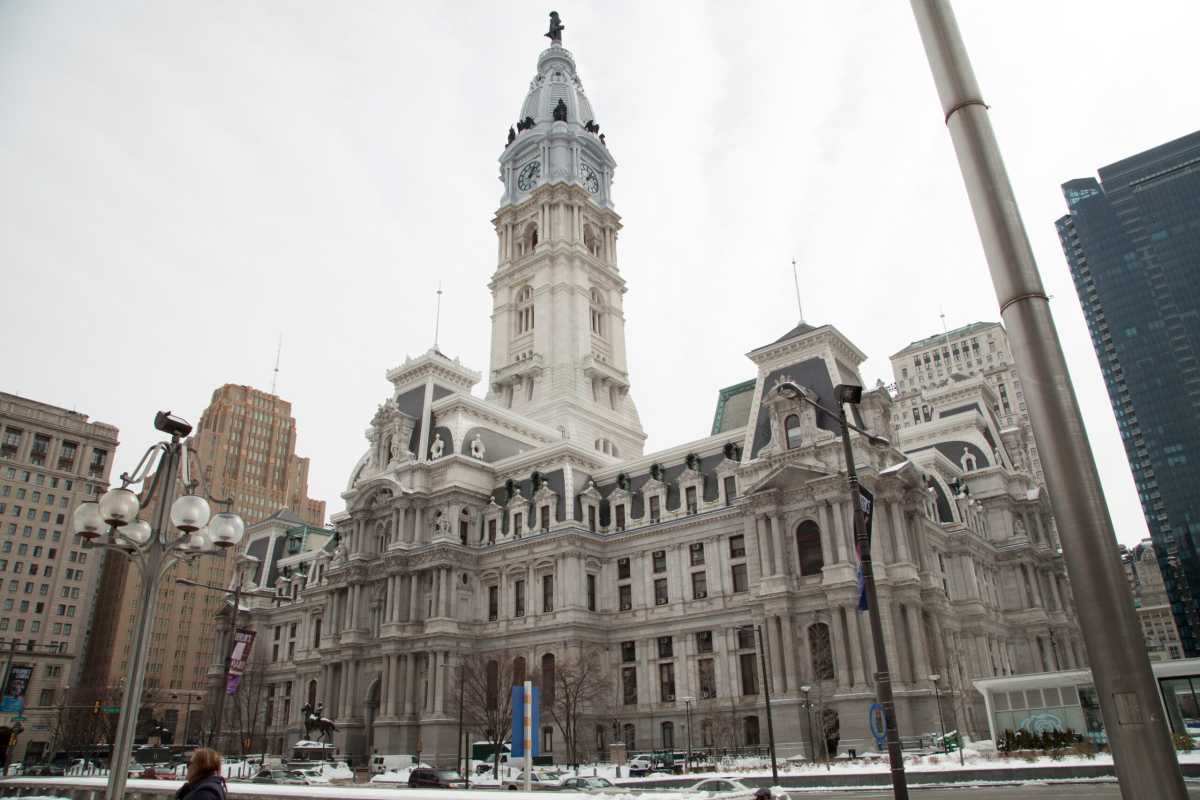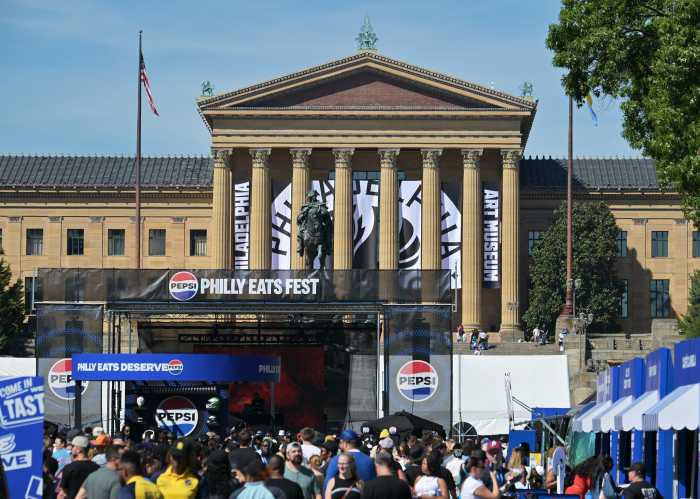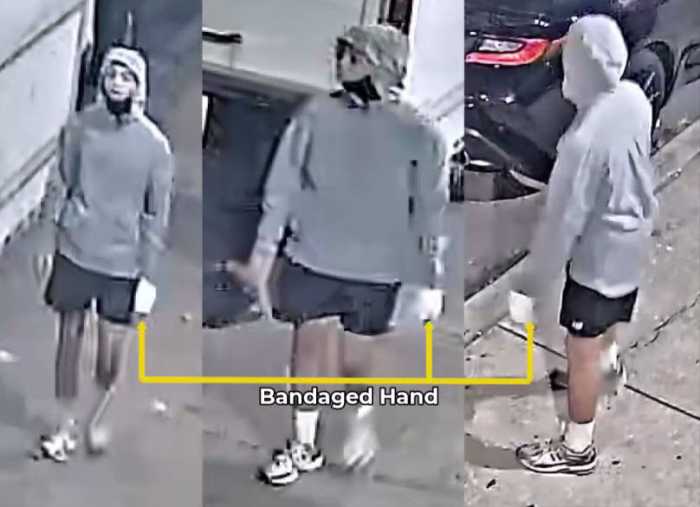Before recessing for the summer, City Council spent several hours Thursday trying to get as much done as possible.
Metro is spotlighting a handful of the 107 pieces of legislation that were approved in the final session before September.
Parker and Johnson’s first budget
Lawmakers on Thursday unanimously passed a $6.37 billion city budget – the first under the leadership of Mayor Cherelle Parker and Council President Kenyatta Johnson.
As previously reported, the spending agreement incorporates a $20,000 increase in the Homestead Exemption and a property tax assessment freeze for low-income homeowners. The plan also includes $100 million for an addiction triage and wellness center; $34 million for rental assistance; and funding to hire 400 new police officers.
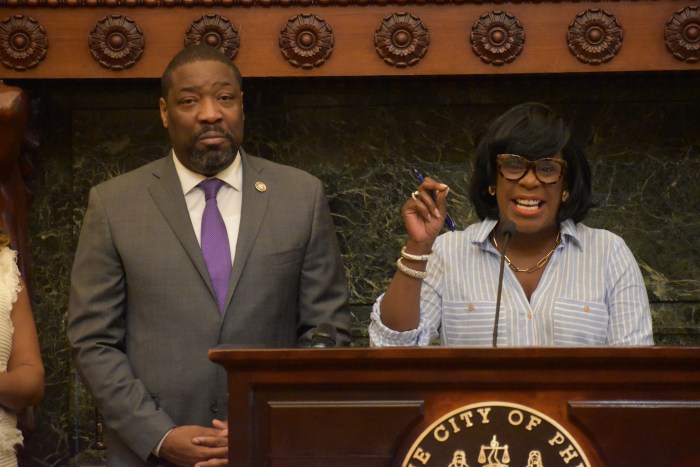
Parker signed the legislation Friday at City Hall.
“Residents will be able to see, touch, and feel the positive impacts of this budget in their neighborhoods, along their commercial corridors, and throughout Philadelphia,” she said in a statement.
Members of the National Domestic Workers Alliance condemned the budget at Thursday’s meeting for not adequately funding the Office of Worker Protections, while some public education advocates urged the city to devote more money to schools.
Big change for nonprofit contracts
Council approved a bill removing the nonprofit contract exemption available to certain municipal departments, despite opposition from the Parker administration and some community organizations.
The exemption allows departments related to health, human services and public safety to bypass the typical city bidding process for agreements with nonprofits.
Majority Leader Katherine Gilmore Richardson introduced the legislation after the inspector general recommended evaluating the special rule in a preliminary report investigating overspending at the Office of Homeless Services.
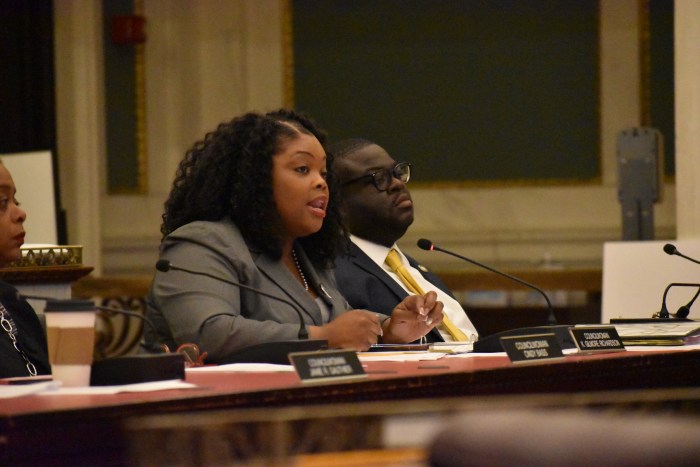
Under the bill, the exemption would be eliminated beginning in July 2025. The measure passed 15-2, though some lawmakers who voted for it expressed reservations.
“This is a tough one for me,” Councilmember Jamie Gauthier said. “I am going to vote ‘aye’ today, but I’m doing so because I’m trusting in our majority leader to really use this next year to bring nonprofits together, to bring all of the relevant city partners together, to make sure that this is something that can work and doesn’t do harm.”
Gilmore Richardson said she is committed to improving the process, and Council also adopted a resolution she introduced Thursday creating a task force to study nonprofit contracting procedures. The body will be directed to produce a set of recommendations by the end of the year.
Reforming the eviction procedure
Major changes are coming for the private security contractors hired to carry out the majority of evictions in Philadelphia.
In the city’s unique eviction system, a private, unelected attorney is appointed as the landlord-tenant officer and hires contractors to do lockouts in exchange for a fee.
Legislators began more closely examining the arrangement following a series of shootings involving LTO deputies last summer.
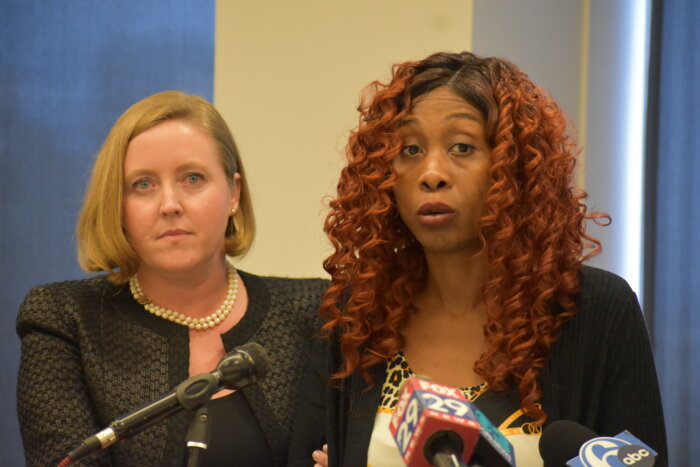
Under legislation approved Thursday, the landlord-tenant officer and their deputies will be required to obtain a license to perform evictions. The city will have the ability to suspend or revoke licenses.
To receive a license, a contractor must maintain an insurance policy and complete at least 189 hours of training in firearm use, crisis intervention and other topics. Ongoing professional development will also be mandatory for yearly license renewal, according to the bill.
More speed cameras coming
Broad Street is set to become the second Philadelphia roadway with speed enforcement cameras, after Council voted Thursday to authorize the devices along the length of the road.
Speed cameras began operating on Roosevelt Boulevard in 2020, and Gov. Josh Shapiro signed legislation last year permitting the city to expand automated enforcement to five additional corridors.
City officials anticipate that the cameras will be installed in the fall. There will be a 60-day warning period, during which drivers caught speeding will be notified but not fined.
Following that initial window, anyone traveling more than 10 mph over the posted speed limit will get a ticket in the mail for $100 or more, depending on their exact speed.
Earlier this month, the Parker administration issued a report recommending speed cameras for Broad Street and four other state routes. Bills allowing automated enforcement on other streets have not yet been introduced.
Parental support
A perhaps overlooked aspect of the budget is a series of investments aimed at aiding working parents.
Gilmore Richardson, at an event Friday, celebrated the inclusion of $6 million to expand paid parental leave for municipal employees from six to eight weeks. She had worked during the last budget cycle to grow it from four to six weeks.
The spending plan also dedicates $1 million for grants to nonprofits focused on addressing Black maternal health. Black mothers are four times more likely than white women to die as a result of childbirth in Philadelphia, according to a 2022 report from the city’s Maternal Mortality Review Committee.
Another $1 million will go toward studying the possibility of a publicly-funded childcare center for city workers.



